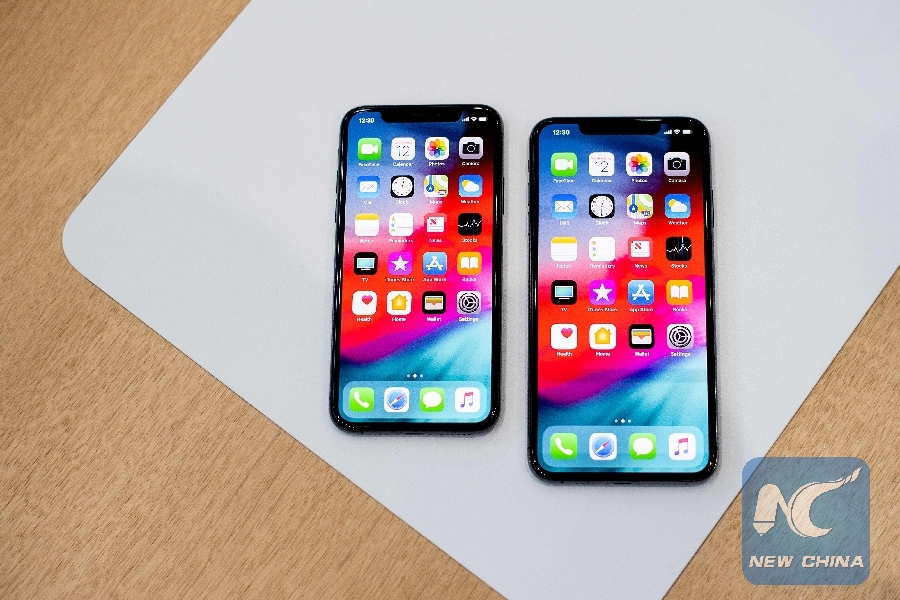
File Photo: An Apple iPhone Xs Max (R) and iPhone Xs rest on a table during a launch event on Sept. 12, 2018, in Cupertino, California. (Xinhua/AFP)
SAN FRANCISCO, Jan. 2 (Xinhua) -- Apple said Wednesday that demand for iPhones on the market is declining and its revenue guidance for its fiscal 2019 first quarter, which ended on Dec. 29, 2018, was revised downward.
Apple CEO Tim Cook said in a letter to investors earlier in the day that the contraction in China's smartphone market has been "particularly sharp."
"As the climate of mounting uncertainty weighed on financial markets, the effects appeared to reach consumers as well, with traffic to our retail stores and our channel partners in China declining as the quarter progressed," Cook said.
Apple has slashed its Q1 revenue guidance to 84 billion U.S. dollars, about 9 percent lower than the market's expected target of about 91.3 billion dollars.
"Most of our revenue shortfall to our guidance, and over 100 percent of our year-over-year worldwide revenue decline, occurred in Greater China across iPhone, Mac and iPad," Cook said in the letter.
He said that even in some markets, upgrades to new iPhone models were "not as strong as we thought they would be."
He also cited other factors that contributed to the drop in iPhone revenues such as consumers adapting to a world with fewer carrier subsidies, price hikes resulting from a stronger U.S. dollar, and lower price for iPhone battery replacements.
Market analysts believed that Apple's products like iPhones in China are facing strong competition from many Chinese home-grown smartphone rivals including Huawei and Xiaomi, whose smartphones are much cheaper than iPhones.
Apple's top-of-the-line iPhones like iPhone XS Max, which were released in fall 2018, sold for more than 1,000 dollars, far more expensive than most China-made mobile phones on the Chinese market.

